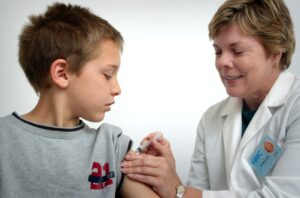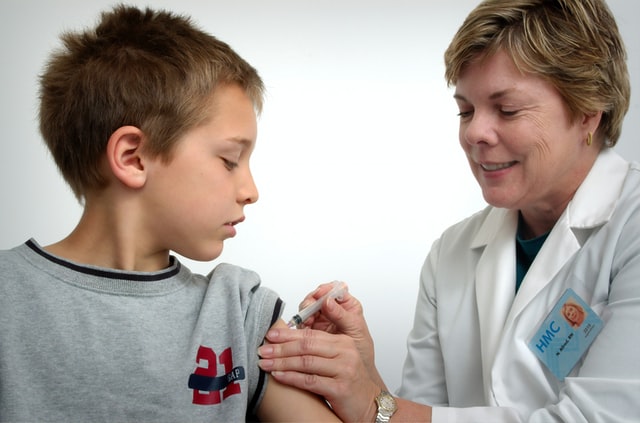Hesitant parents, vaccinated only 6% of children

TORONTO – The Covid vaccine does not convince parents. The number of children under the age of five who are vaccinated against the virus in Ontario is even lower than the relatively small figure that many experts expected. Despite being available for two months, about 6% of the youngest age group have received the first dose.
The failure, if you can call it that, of the vaccination campaign directed at children, disappoints and worries the Chief Medical Officer of Health of Ontario Kieran Moore.
“I certainly want more families to consider immunizing their six-month- to four-year-olds, especially high-risk children,” Moore said, “we know that many children – more than 5 percent – have diseases that could predispose them to serious problems if they contract the virus, so we encourage those parents to talk to their doctor about the risks and benefits.”
It is not at all surprising to find that parents are reluctant to vaccinate their children Raywat Deonandan, epidemiologist and associate professor at the Faculty of Health Sciences at the University of Ottawa. Deonandan, said that despite the many factors at play that are likely to underlie so much hesitation, he would still have expected a higher number. “I am not surprised that the rate of vaccinated children is low, I am surprised that it is so low – he said – many people believe false narratives that the pandemic is over and that children do not get sick when they are infected with Covid-19”.
Information on the safety and efficacy of the vaccine, according to Deonandan, must be given to parents in a clear way. “You should say ‘parents, this is a decision you have to make and I want to give you all the information I have in a transparent way so that you make the right choice,’ Deonandan concluded.
And it bears the signature of Canadian researchers a study on the aftermath of Long Covid. Research suggests that some patients suffering from symptoms including fatigue and respiratory failure are showing signs of autoimmune diseases such as rheumatoid arthritis and lupus.
Manali Mukherjee, who led the study and is a circulatory diseases researcher at McMaster University in Hamilton, said two specific abnormal antibodies, or autoantibodies, that attack healthy tissues and are known to cause autoimmune diseases, a year after they contracted the infection were still present in about 30 percent of patients.
The research was based on blood samples from people who were diagnosed with Covid-19 between August 2020 and September 2021 and who received treatment in two hospitals in Vancouver and another in Hamilton. “The persistence of autoantibodies for a year or more indicates the need for patients to consult a specialist who can test for the presence of autoimmune diseases, conditions that also include type 1 diabetes and multiple sclerosis. They really need to undergo a rheumatological check.”
The study, which also involved Dr Chris Carlsten, from the Division of Respiratory Medicine at the University of British Columbia, was published today in the European Respiratory Journal.



